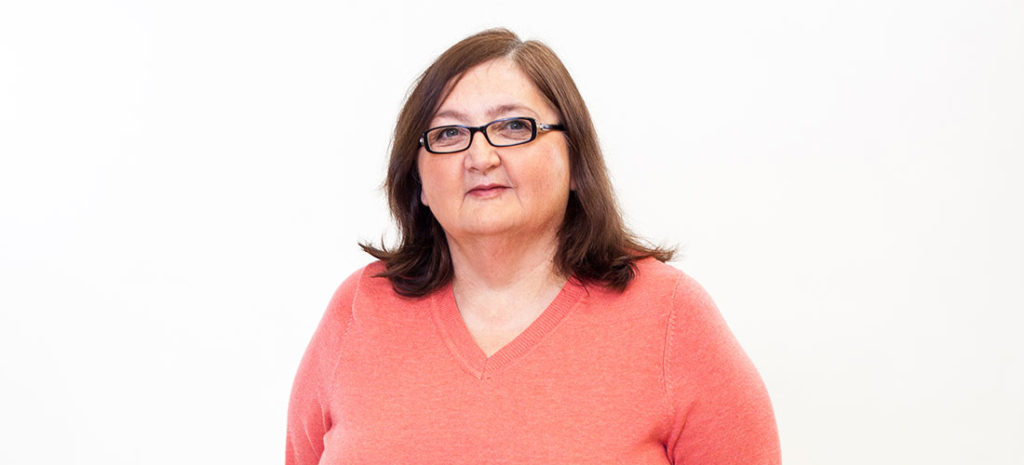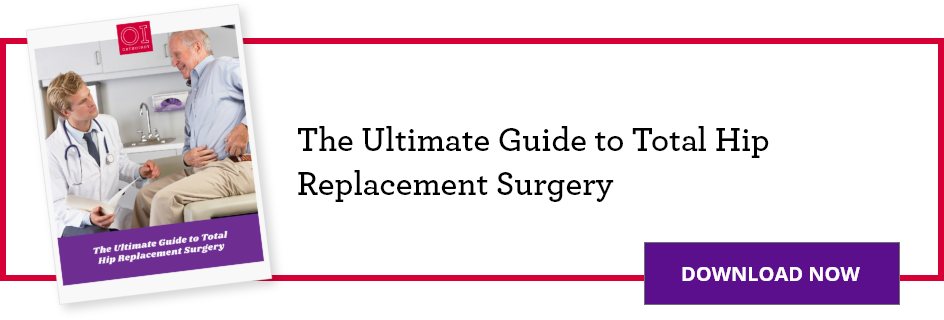This post is part of the Ultimate Guide to Total Hip Replacement
Unable to walk for more than ten minutes at a time, Karma Malcom couldn’t stop gaining weight. She was uncomfortable and becoming depressed. All of her greatest joys in life were nearly impossible to do. Playing with her new granddaughter, volunteering at the church and just being active caused too much pain in her hip for her to bear.
“I experienced hip pain for several years and just got to where I couldn’t be mobile at all. I was stationary and stayed in the house. I wasn’t outgoing at all and it hurt my lifestyle.”
After being told by another orthopedic physician that he wouldn’t do the surgery because of her weight, Karma was disheartened and afraid she would have to live the rest of her life immobile and in pain.
“I had a new granddaughter and wanted to be able to do things with her when she got older. Anything and everything to volunteer at I am the first one there. That’s my joy in my life is giving back and I couldn’t even do that. I was at the end of my rope, thinking I would have to live with this the rest of my life.”
Physician examination
Karma decided to give one more physician a visit and went to visit Dr. Edward Hellman an OrthoIndy surgeon. Dr. Hellman diagnosed Karma with osteoarthritis of her hip and informed her that she needed a total hip replacement.
Like other joints that carry your weight, your hips may be at risk for “wear and tear” arthritis called osteoarthritis, the most common form of arthritis. Osteoarthritis occurs when the smooth and glistening covering on the ends of your bones, that helps your hip joint glide, wears thin.
You are more likely to get osteoarthritis if you are elderly, obese, have an injury that puts stress on your hip cartilage or if you have a family history of the disease. However, you can still develop it if you do not have any risk factors.
The first sign may be a bit of discomfort and stiffness in your groin, buttock or thigh when you wake up in the morning. The pain usually flares when you are active and gets better when you rest. If you do not get treatment for osteoarthritis of the hip, the condition keeps getting worse until resting no longer relieves the pain. The hip joint gets stiff and inflamed. Occasionally bone spurs will build up at the edges of the joint.
When the cartilage wears away completely, bones rub directly against each other. This makes it very painful to move. Sometimes you lose the ability to rotate, flex or extend your hip. If you become less active to avoid the pain, the muscles controlling your joint get weak and you may start to limp.
While you cannot reverse the effects of osteoarthritis of the hip, early nonsurgical treatment may help you avoid a lot of pain, disability and will slow the progression of the disease. Surgery can help if your condition is already severe, as in Karma’s case.
Total hip replacement surgery
Dr. Hellman performed a total hip replacement surgery on Karma. To perform a total hip replacement, an incision is required that allows the surgeon to enter and dislocate the hip joint. The femoral head is removed to allow access to the socket of the hip. A metal cup is placed in the socket and will have a modular bearing that articulates with a modular femoral ball.
The femur is prepared for a stem (reaming, broaching or both) and trial components are used to assess the joint stability, leg length and range of motion. The real implants are then placed into the bones and the modular cup liner and femoral ball are put in place. The hip is put back together and the wound is closed. Any muscles or important tissues that have been released are usually repaired at the time of closure.
“I was scared because I didn’t know what was going to happen with this kind of surgery and everything went just fine. I felt completely at ease with everyone.”
The recovery from a total hip replacement takes 6 to 12 weeks. This is the time it takes for the soft tissues to heal, bone to grow into the implants and for the patient to regain a normal sense of well being. The pain relief is usually early and after 4 to 6 weeks, most patients have little if any hip pain. They may be on protected weight bearing for a few weeks after the surgery depending on surgeon directions, but usually can walk without a cane, crutch or walker within a few weeks. The muscles regain strength also within 4 to 6 weeks.
“As soon as I got home, it was painful at first, but nothing I couldn’t bear. I kept thinking one more day you are closer to walking, one more day and you can walk a marathon, help with the church all the time or chase my granddaughter around. That was my motivation to get out of the house and get moving.”
If you have early stages of osteoarthritis of the hip you may not need surgery immediately. Nonsurgical treatment options include: resting your hip from overuse; following a physical therapy program; using nonsteroidal anti-inflammatory medications like ibuprofen for pain; getting enough sleep each night; and losing weight if you are overweight.
“My surgeon at OrthoIndy was wonderful. I promised him that if he would do my surgery I would lose 100 pounds the first year and I did. Now, I’ve lost 200 pounds since I have had my surgery. My life is great I go to the gym five days a week and I can get down on the floor and play with my granddaughter, who is the joy of my life. I walk in 5Ks. I can volunteer more, which is my goal to help others. Having the surgery and losing all the weight proved that I was in charge of myself and when I got my life back nothing was going to hold me back.”
To schedule an appointment with Dr. Hellman please call 317.802.2844 or learn more treatment options for hip pain at OrthoIndy.
Schedule an appointment
Your well-being is important to us. Click the button below or call us to schedule an appointment with one of our orthopedic specialists. If your injury or condition is recent, you can walk right into one of our OrthoIndy Urgent Care locations for immediate care. For rehabilitation and physical therapy, no appointment is needed to see one of our physical therapists.






